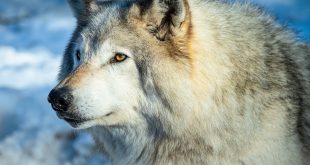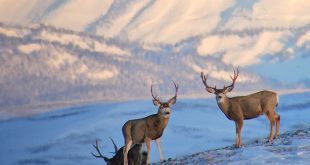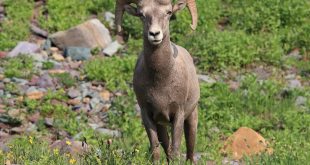I have what many would call a honey hole for big deer in some of the best country that Wyoming has to offer. That piece of ground has taught me much about hunting the grey ghosts of the high country as well as what to expect from the weather when hunting them. I used to carry the philosophy that adding any layer would work, until the long shadows that make early mornings so cool above 10K taught me the value of an insulation layer. A cold morning spent shivering beneath a towering peak sent me into an in-depth study and maybe what my wife would call overkill, of the puffy layer and all types of insulation.
The desire to never be that cold again led me to use Sitka’s Kelvin Down Hoody. And I fell in love with its performance, especially during the long-evening glassing sessions that tend to rob heat from the body as well as the long-shadowed mornings. I love how packable it is and that it functions perfectly when packed into its stuff-sack as my pillow. The hood is also fully stuffed with down that traps heat around your head and retains it very well.
In late August of 2014, a friend and I took a trip into the high country to scout for pre-rut bulls and the temperatures took a turn downwards. Clouds rolled in blocking the sun and the puffy-down jacket got pulled out of the pack. The Kelvin Down Hoody performed flawlessly but it was a little bit overkill if there were any large movements or a change of position was necessary for a better glassing point. I wondered what was out there for insulation combinations that would work well in earlier seasons?
This year I am/have been using a combination of the new Sitka Merino and Polygiene base layers with the new Core Midweight Zip T and the Kelvin Lite Hoody for all of my September hunts and August scouting missions. Any one of these layers can be matched with the others to provide a lightweight combination that kept me warm when the cold wind hit last week on a scouting trip. When the wind got really bad I added a rain layer and was comfortable the entire time I was glassing on the ridge.
The new Polygiene Core Midweight Zip T is soft to the touch and has almost a fleece-like feel to the inside. The range of motion is well thought out and the fit is good, even for a tall guy like me. The zippered neckline makes it easy to retain or lose heat as needed during the day. The real beauty of this piece is that it doesn’t stink after several days use in the backcountry. This is new territory for synthetic base layers which traditionally build odor much quicker than their merino counterparts.
The Kelvin Lite Hoody is noticeably lighter than its down insulated big brother. It packs down small, saving space in my pack and dropping my overall pack weight, which is always a good thing. The 80 g/m2 Primaloft Hi Loft Silver insulation is a tried and true option that I have had great experience with before and it didn’t disappoint me on a morning in the high country that dipped down to the freezing point. Primaloft’s advantage is that it doesn’t lose its loft like an untreated down does when it gets wet. For a guy like me who tends to perspire a lot, it is a hard thing not to like.
The sleeves have an athletic cut that make movements effortless and the gusseted wrists have a stretch panel that works incredibly well while shooting a bow or twisting to the side. The hood itself fits snugly around my face and locks in heat.
When paired together the Polygiene Core Midweight Zip T layer and Kelvin Lite Hoody won’t have the R-value that the 800 fill goose down Kelvin Down Hoody does but it is more than enough for all of the hunts I have planned in some of Wyoming’s finest high country mule deer and elk habitat during the early season. With these options for insulation at my disposal I have no one to blame but myself if I get cold on an early morning glassing session!
 Eastmans' Official Blog | Mule Deer, Antelope, Elk Hunting and Bowhunting Magazine | Eastmans' Hunting Journals
Eastmans' Official Blog | Mule Deer, Antelope, Elk Hunting and Bowhunting Magazine | Eastmans' Hunting Journals






I think Sitka gear is good but in my experience nothing can beat the natural fibers like silk, wool or down. When you blend them with synthetics I feel its just waters down the effectiveness and is a cost reduction measure in manufacturing regardless of the hype.